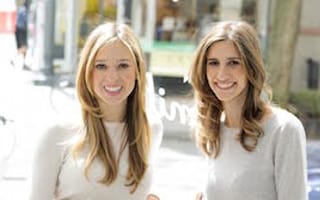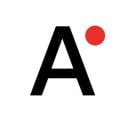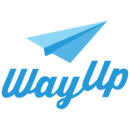
Danielle Weisberg and Carly Zakin
What do you wish someone had told you early on?
Learn to code. Even if you think you will never touch the back-end of a product, you need to understand tech, be able to talk tech, and know how it can help in a lot of different careers. It was frustrating to know that we needed to hire developers to help grow our company but couldn't do these interviews without help from advisors. Having basic tech knowledge and coding skills will make you more competitive in most workplaces and show that you actually keep up with how things are changing.
What was the biggest advantage you had when starting out?
We were totally naive. We started the company with almost no savings, from our couch, when we were in our early 20s. If we knew how hard it was going to be, we would have probably over analyzed it. We just jumped in. We put everything we had on the line so we had no choice but to see it through.
How have you been able to grow your company so quickly?
We understand our core audience of female millennials. Everything we build and take to market is intended to fit seamlessly into their existing routines. We created our inaugural product — the Daily Skimm — in email format to meet our readers where they are first thing in the morning: checking email with one eye open in bed, on their phones. And our new app, Skimm Ahead, makes it easier to be smarter about future events and can integrate them into your iPhone calendar. We're all obsessed with our calendars so we stayed true to the routine that made sense to tackle next. Our audience is core to our mission and we are constantly coming up with ideas that we know will resonate with them.

Marcela Sapone
What's a piece of advice you received early on that's stuck with you?
"Don't let perfect be the enemy of good." Jess and I were both management consultants at McKinsey and saw a lot of executives tackling tough problems — getting the strategy right could make or break you. We were trained to fine-tune the decision with as much data as we could muster.
After consulting, I went to work for a former submarine captain who went on to be the CEO of a large consumer goods business. He was an operator through and through, and used to say "don't let perfect be the enemy of good" to remind us to have a bias for action. The idea is that you educate yourself with as much data as possible and are thoughtful, but then commit to a decision and do it. Don't get stuck finding the perfect decision; execute. The world is changed by doers who learn through their actions.
What do you wish someone had told you early on?
Perhaps building on the advice to act... I would have liked to hear: "you have to write the book ... you really have to write the book." There is no playbook — just lessons and wisdom from others that can inspire you. In the end though, you write your own playbook. You have to learn to trust your intuition more as time goes on.
What's the biggest lesson you've learned that you think could help young, aspiring female founders?
There has been a lot of research on a confidence gap between women and men. That expresses itself when pitching your idea, hiring the best, or outmaneuvering the competition. One of my favorite lines from such a study is in the Atlantic "In studies, men overestimate their abilities and performance, and women underestimate both. Their performances do not differ in quality."
Sounds like a disadvantage! My advice is to turn it into an advantage.
Why not use doubt as a powerful tool. Don't be afraid of having emotions, or caring, or doubt — use them as a clue to sniff out places in your business thesis that you have big questions. Think about every meeting as an opportunity to get feedback on those questions. Then do work to disprove hypotheses you have and answer them. If you pull apart the doubt and turn it into action, you will not only have the confidence to move forward, but have the goods to back it up.
What do you tell yourself (or each other) when the going gets tough?
Jess was a D1 rugby player, so we have a lot of sports analogies together. One of my favorites: "The tough is what makes it great" Jess likes to say. Building a business is hard work, and hard in general and that's the beauty. We wouldn't be doing anything else, because each day is an opportunity to learn and go past your edge.

Tiffany Pham
What's a piece of advice you received early on that's stuck with you?
I believe in failing forward. It's a philosophy my father engrained in me from a young age. So long as you're learning, you are not so much failing as you are moving forward. In the end you are more resilient. I've heard so many little nos — I guess you could call them mini failures — and in the end I just move past them. I realize that many of the no's were actually more not-right-nows.
What's the biggest lesson you've learned that you think could help young, aspiring female founders?
In terms of technology: Establish your vision of what you would like to accomplish in 10 years, then backwards from 5 years to now. Whatever it is you would like to create, rapidly prototype this idea. Then, listen to others. Incorporate their feedback so long as it is not fully misaligned with your ongoing vision. Over time, iterate towards perfection. Don’t be held up by the need to be perfect now.
In terms of talent: Collaborate for access. Find industry leaders with whom your interests might resonate, and obtain warm introductions through mutual connections. Learn what opportunities might enable you to collaborate with them in order to learn from them. Whatever task you’re given, whatever partnership you agree to, ensure that you over-deliver for them. Earn their trust, and build a now genuine friendship.
In terms of community: Be kind. Be authentic. Be generous. Stay in touch with “why” you wanted to start this company in the first place, why it’s important for the world.

Jennifer Fitzgerald
What's a piece of advice you received early on that's stuck with you?
If it were easy, everyone would be doing it!
What do you wish someone had told you early on?
That however hard I think building a company might be, it will actually be 10 times harder - so be prepared mentally and physically for it.
What's the biggest lesson you've learned that you think could help young, aspiring female founders?
Master the ability to tell a compelling story. So much of being a founder is crafting and delivering a story (based in fact, of course) that excites investors and employees. Especially in the early days, you're an evangelist. And effective evangelists are great storytellers. A great idea and sound business fundamentals won't mean anything if you can't effectively communicate it to your audience.
What do you tell yourself when the going gets tough?
That everyone goes through it. And to work the problem.

Liz Wessel
What's a piece of advice you received early on that's stuck with you?
You'll end up spending more time with your job than your spouse for your first 30+ years out of college, so treat your job search seriously, and make sure you're doing something that will make you happy.
What's the biggest lesson you've learned that you think could help young, aspiring female founders?
No one really knows what they're doing (except doctors, I hope!)... so don't be intimidated.
What do you tell yourself when the going gets tough?
Tens of thousands of students have been hired because of WayUp. And there's way more to come!

Erin Bagwell, Dream, Girl Film
What's a piece of advice you received early on that's stuck with you?
When I was about 10 years old my Aunt Val and I were at little dinner and my aunt who is super creative pointed to a bunch of objects in the space. She said “this menu was created by artists, this booth was designed by artists — this myth that people can’t be creative and make money is ludicrous, everything around us was made by someone.” And that really has stuck with me. This narrative of the starving artist pushes a lot of people away from creative fields, and I’m really glad I was aware of and encouraged to value my creativity.
What do you wish someone had told you early on?
I think we are always waiting for that lightning bolt moment to rock our world and change our lives. We are waiting for the right job, outfit, and opportunity to bring out the best versions of ourselves, and I think we are a bit disillusioned in thinking it has to be an outside force or factor. We don’t need permission to follow our dreams, and once we realize that is when the floodgates open and the magic happens.
What's the biggest lesson you've learned that you think could help young, aspiring female founders?
Be expensive and be seen. I think we have a scarcity mentality when it comes to women and business and I think as founders we need to own that making money is part of the business and to not be ashamed or apologetic about it.
What do you tell yourself (or each other) when the going gets tough?
I’ve learned over the past two and a half years of running Dream, Girl I’m actually a pretty resilient human but when stuff starts to feel hard I know it’s because I’m not rested. I can handle any problem or situation if I’m well rested, fed, and have given myself the adequate space to check out so I can come back and crush whatever obstacle is in our way. So when you are starting to feel overwhelmed or awful take a bubble bath or a walk, or have some ice cream. #Selfcare is an absolute must. As RuPaul says “if you don’t love yourself how the hell are you going to love anyone else?” Especially your business. Can I get an Amen?
Know of a company that deserves coverage? Let us know or tweet us @builtinnewyork.








